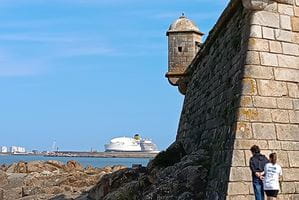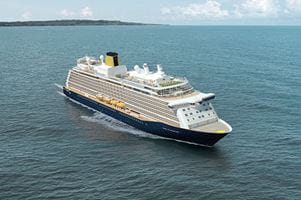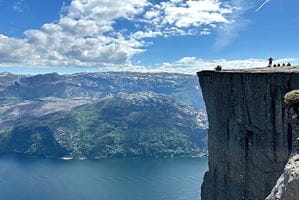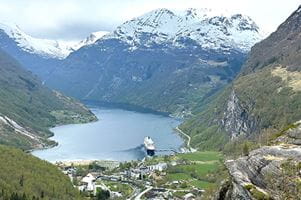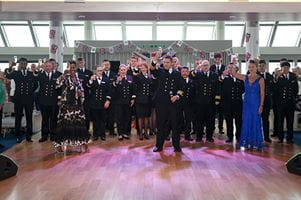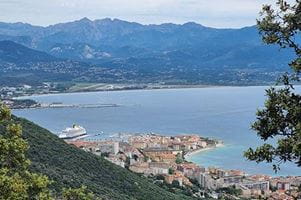Spirit of Adventure blog
A Caribbean Christmas part 2
17th December, 2021
Five days of smooth and comfortable sailing followed departure from the Azores. The Spirit Adventure was met by slight seas, calm winds, clear skies, and increasing temperatures as the ship headed southwest. The last day before arrival in the Caribbean brought some wetter and very humid conditions, whilst the swell height did build compared to previous days, however the sea state remained moderate.
During this passage, the Captain used his noon passenger announcements to share some information on different aspects relating to navigation in the Atlantic. Topics included a brief history on navigation instruments, with comparisons made between the accuracy of modern GPS systems and instruments such as the sextant, octant and quadrant.
The Captain also spoke about the Atlantic ‘garbage island’. First documented in 1972, there is a large patch of garbage in the centre of the North Atlantic. It’s estimated to be hundreds of miles across in size, with 600,000 pieces of garbage per square mile. The formation of this island has occurred because of the North Atlantic Gyre, a clockwise current flow in the North Atlantic. This system drives garbage into a central point at which there is little net current flow. It poses a significant risk to marine wildlife; whilst awareness and clean-up campaigns are underway, more efforts have gone towards the larger and better-known Pacific garbage patch.
Another topic was the Intertropical Convergence Zone, a band of low pressure which lies around the Earth. As the Spirit of Adventure headed closer to the equatorial region, it became liable to experience some conditions associated with this zone. This is where the trade winds of the northern and southern hemispheres converge, hence the name. The resultant rising of air leads to low pressure, which can cause thunderstorms and heavy rain within the zone. This is because moisture in the atmosphere is brought to an altitude at which the temperature causes it to condensate. The zone migrates seasonally, leading to variation in conditions experienced in different locations throughout the year.
The Spirit of Adventure remains due to arrive in St John’s, Antigua, on Saturday morning, the first of six Caribbean ports being visited.
Felix Checksfield
Cadet
And from Captain Darin Bowland: A thank you to our Felix for all his help with the blogs.
The opinions expressed are those of the author and are not held by Saga unless specifically stated.
The material is for general information only and does not constitute investment, tax, legal, medical or other form of advice. You should not rely on this information to make (or refrain from making) any decisions. Always obtain independent, professional advice for your own particular situation.



